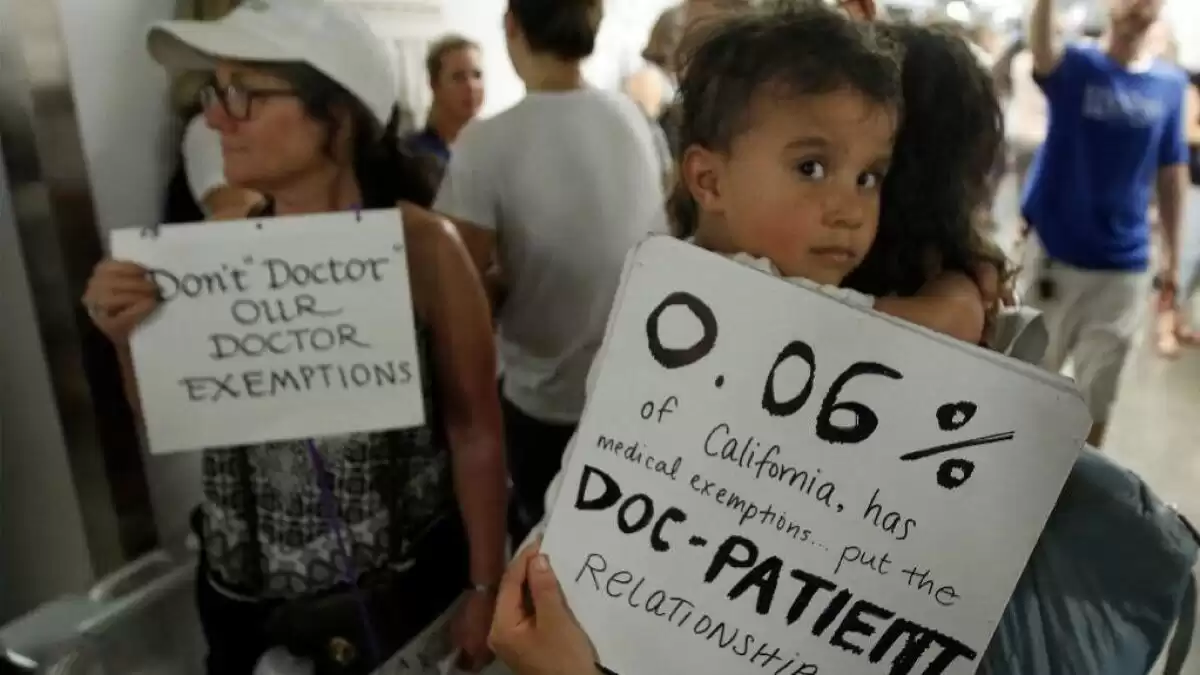Critics say vaccine bill risks children's medical privacy. Real threat or red herring?
California lawmakers are proposing a bill that would collect sensitive health information of schoolchildren exempted from vaccinations due to medical reasons. The proposed data collection has raised concerns about the security and privacy of children's medical data. However, experts argue that the importance of preventing outbreaks and epidemics should be weighed against privacy concerns.
California lawmakers are pushing for increased state oversight of immunizations, proposing a bill that would require the collection of sensitive health information from schoolchildren who have been exempted from vaccinations for medical reasons. However, this proposed data collection has raised concerns among parents who are already opposed to state-mandated vaccinations, questioning whether California can be trusted to protect their children's private medical data.
The issue of privacy in healthcare data breaches is becoming more prominent, with over 500 incidents occurring in the United States in the past 16 months, affecting nearly 18 million people, according to the U.S. Department of Health and Human Services. Even experts who support broader immunizations acknowledge the importance of this privacy debate.
Dr. Jonathan Fielding, a professor of public health and medicine at UCLA, acknowledges parents' concerns about privacy due to the prevalence of cybercrime. However, he also emphasizes the need to prevent outbreaks and epidemics of diseases through vaccinations.
The proposed Senate Bill 276, introduced by Sen. Richard Pan, would grant the state health department the final authority in determining whether a child should receive a medical exemption from required vaccines for school attendance. Currently, doctors have the power to excuse a child from vaccinations, but Pan argues that some physicians have abused this practice by offering medical exemptions for financial gain.
Amidst a nationwide surge in measles cases, Pan believes it is essential to ensure that everyone who can be vaccinated receives their shots in order to attend school. His solution through SB 276 is to establish a new oversight arm in the state's Department of Public Health, granting them the authority to approve medical exemptions. The department would develop a standardized medical exemption form for doctors to complete and submit to the state. Requests would be evaluated and approved or denied by the state's public health officer or their designee. Approved medical exemptions would be included in a database created by the agency for use by public health officials.
Opposition groups, such as Educate. Advocate., express concerns about the potential compromise of students' private health information through the state's medical exemption database. They worry that hacking could expose confidential medical information, leading to discrimination by insurance companies, educational institutions, and future employers based on pre-existing conditions and disabilities.
The specifics of the bill, including the contents of the database and who would have access to it, would be determined by the public health department. The department already manages various databases containing sensitive medical information, such as one for monitoring individuals diagnosed with HIV in California. They also track individual cases of measles in the state.
Catherine Flores-Martin of the California Immunization Coalition believes that those who view this as invasive are individuals who feel their access to exemptions has been restricted. She expresses confidence in the state public health department's ability to handle exemptions as they do with other data.
While medical data are sensitive and require adequate protection, John Verdi of the Future of Privacy Forum notes that vaccine exemptions are unlikely to be targeted by hackers because they typically lack valuable information like Social Security numbers or credit card details. He emphasizes the importance of implementing privacy and security measures while recognizing the benefits of collecting and using certain data.
In conclusion, the proposed bill in California aims to increase state oversight of immunizations by collecting sensitive health information from schoolchildren with medical exemptions. This has sparked concerns about the privacy and security of the data, given the prevalence of healthcare data breaches. The bill would grant the state health department the authority to approve medical exemptions and create a database for public health officials to access. Opposition groups worry about potential discrimination based on this sensitive information. However, proponents believe that the state public health department can effectively manage the exemptions and that common-sense safeguards can be implemented to protect privacy and security.












Comments on Critics say vaccine bill risks children's medical privacy. Real threat or red herring?